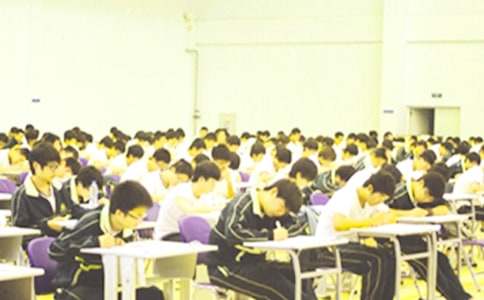- 相關(guān)推薦
2022年1月7日托福考試口語(yǔ)真題
無(wú)論在學(xué)習(xí)或是工作中,我們都要用到試題,借助試題可以檢驗(yàn)考試者是否已經(jīng)具備獲得某種資格的基本能力。你所見(jiàn)過(guò)的試題是什么樣的呢?下面是小編幫大家整理的2022年1月7日托福考試口語(yǔ)真題,歡迎閱讀與收藏。

Task 1:
The university wants to provide student more entertainments and three choices provided below, which do you prefer and why.
A theater performance by the student actors
A concert provided by professional musician
A lecture from a professor
Task 2:
Friends may disagree with each other, and still maintain friendship. Do you agree with or disagree with this idea, why?
Task 3:
閱讀
標(biāo)題:Create a Student Magazine
原因1: Students spend a lot of time on their paper, and some of them have high quality. So we need a magazine to publish those good quality papers.
原因2: Publish students’ paper can share information about their academic achievement and provide them confidence
聽(tīng)力
態(tài)度:Approval
原因1:There is a lot of paper, we can select some of them to publish on a magazine. This will be an encouragement for the students.
原因2:Other students will be able to find useful material from these paper and they can learn how to organize their own paper.
Task 4:
閱讀
標(biāo)題:Life Stage of Animal Migration
定義:In different life stages, some animal need to migrate to various places to live, because of the deity and safety. When they are young, they may safe and have enough food in the original place. However, if they grow older, the original place may have threads from the predators and the food may be insufficient.
聽(tīng)力
例子:Anglerfish lay eggs in deep sea. Then, the eggs will float to the surface of the sea, where the younger Anglerfish can enjoy enough food and sunlight. But when they grow older, they predator will be a great threat to them, so they will migrate to the deep sea.
Task 5:
問(wèn)題:The girl moved to a new apartment, and the window glass was broken when her friend help her hanging a picture to the wall. They need to replace the glass, but it is expensive.
解決方案1:Her friend and she share the cost of window glass.
優(yōu)點(diǎn)1:it is not much money if they share the cost. Only 50 dollar each.
缺點(diǎn)1:Her friend came to help her and does not break it purposely. She feels it’s unfair for her friend.
解決方案2:She will cover the whole cost.
優(yōu)點(diǎn)2:it will be fair for her friend and she will feel better.
缺點(diǎn)2:100 dollar is expensive for her.
Task 6:
話題:Business Networks
要點(diǎn)1:We are in a business network. Different people engage in various occupations. They have different knowledge and skills.
例子1:A woman running a restaurant may have friends or customers engaged in various occupations. When she needs an accountant, she will find one from her business network. She will trust more on the accountant whom she knew than those she does not know.
要點(diǎn)2: In a business network, we not only trust the people from our own networks, we also trust the persons who are mended by the people we knew.
例子2: The women will introduce one of her friends to another, who may need the professional help but does not know a person in his/her own network.
拓展:托福考試真題及答案
獨(dú)立寫(xiě)作
Do you agree or disagree with the following statement? It is better for older people to take risks and explore new things than younger people.
綜合寫(xiě)作
水手死于鉛中毒,有些人認(rèn)為是罐頭食品的原因。
閱讀:
1.罐頭雖然里面含有金屬鉛但是制作的時(shí)候這個(gè)劑量都是控制的,只是少量,而且食物在罐頭里儲(chǔ)存的時(shí)間很短,所以不應(yīng)該是罐頭導(dǎo)致的。
2.當(dāng)時(shí)的其他船員也都會(huì)食用這種罐頭,假如真的因?yàn)楣揞^不可能只有這一例中毒案件
3.他們有一個(gè)凈化水的系統(tǒng),所有用水都是干凈的,所以不可能是食物導(dǎo)致的。
聽(tīng)力反駁:
1.雖然放的時(shí)間很短,但確實(shí)那些食物是inside of cans
2.水手身體沒(méi)有經(jīng)過(guò)test而且light poisoning很難被識(shí)別出來(lái)
3.通過(guò)凈化器的水不能用于drinking和cooking,而海水對(duì)人身體不好,所以凈化器沒(méi)有用。
托福寫(xiě)作考試字?jǐn)?shù)有沒(méi)有要求?
速度提升
其實(shí)對(duì)于托福作文來(lái)說(shuō),不外乎四個(gè)字“熟能生巧”。
但是互相我們寫(xiě)托福寫(xiě)作的過(guò)程,其實(shí)2個(gè)部分最為消耗我們的時(shí)間,第一個(gè)就是構(gòu)思的過(guò)程,第二個(gè)就是想一句話怎么表達(dá)的過(guò)程。這兩個(gè)部分是最為消耗時(shí)間的。因此,其實(shí)縮減寫(xiě)作文時(shí)間的過(guò)程,就是減少這兩個(gè)部分所消耗的時(shí)間。
首先說(shuō)第一個(gè)部分,構(gòu)思的過(guò)程。
其實(shí)想必絕大多數(shù)上過(guò)輔導(dǎo)班的考友們都知道托福作文就是傳統(tǒng)的,龍頭鳳尾豬肚子,這樣的寫(xiě)作方式。第一段表明自己的觀點(diǎn),然后接下來(lái)每一段一開(kāi)始給出分論點(diǎn),最后一段進(jìn)行總結(jié),就這么簡(jiǎn)單。
但是實(shí)際上,這是我們想的方向不對(duì),總是在向很宏觀的想。這里的訣竅就是向細(xì)分領(lǐng)域想!當(dāng)我們總是在想建筑對(duì)社會(huì)很好的時(shí)候,我們就是會(huì)很想象到理由以及例子,但是如果我們想得很細(xì)的時(shí)候,就發(fā)現(xiàn)好說(shuō)了,比如我們可以說(shuō)趙州橋,既有實(shí)用價(jià)值,也有觀賞價(jià)值。這就言之有物了!這是第一,減少構(gòu)思的過(guò)程的時(shí)間,靠細(xì)分領(lǐng)域。
接下來(lái)就是表達(dá)的過(guò)程。
其實(shí)對(duì)于表達(dá)的過(guò)程來(lái)說(shuō),我們也知道一句話,叫做日啖荔枝三百顆,不辭長(zhǎng)作嶺南人!應(yīng)該是熟讀唐詩(shī)三百首,不辭長(zhǎng)作嶺南人!應(yīng)該是不會(huì)作來(lái),也會(huì)吟。換句話說(shuō),也就是要第一熟悉這門語(yǔ)言,然后多使用這門語(yǔ)言。
這其實(shí)就可以靠多做中譯英的翻譯,就會(huì)有所改進(jìn),比如說(shuō)我們可以用一些網(wǎng)站將我們自己的作文按照對(duì)方地道的原文進(jìn)行修改,這樣的方法,通過(guò)大量的進(jìn)行中譯英的轉(zhuǎn)換,來(lái)增加我們的熟練度,這樣就可以逐步削減我們的思考怎樣表達(dá)的時(shí)間。
字?jǐn)?shù)要求
托福作文如果能達(dá)到350字-450字就已經(jīng)很好了,只要達(dá)到這個(gè)范圍內(nèi)基本上就不會(huì)對(duì)你的分?jǐn)?shù)產(chǎn)生任何負(fù)面影響。然而很多同學(xué)會(huì)進(jìn)入一個(gè)寫(xiě)作誤區(qū),一味的追求字?jǐn)?shù),把本來(lái)簡(jiǎn)單的意思非要復(fù)雜化,講的特別啰嗦。這樣的同學(xué)反而不會(huì)得高分。
在官方指南中有這么一句話“An effective response is typically about 300 words long。 If you write fewer than 300 words,you may still receive a top score,but experience has shown that shorter responses typically do not demonstrate the development of ideas needed to earn a score of 5。”
關(guān)于托福獨(dú)立寫(xiě)作的字?jǐn)?shù),唯一的要求就是下限,不能低于180.但是如果點(diǎn)寫(xiě)道了,再少也不可能少于180。托福獨(dú)立寫(xiě)作基本上是機(jī)器評(píng)分就下了定論,人工評(píng)分部分基本上是重復(fù)機(jī)器的分。機(jī)器的評(píng)分標(biāo)準(zhǔn)就是對(duì)比你寫(xiě)的點(diǎn)和原文的點(diǎn)以及聽(tīng)力部分的點(diǎn)。答準(zhǔn)1點(diǎn),答全1點(diǎn),得多少分,然后看你的改寫(xiě)程度,改寫(xiě)程度高,再加分。最后看你的結(jié)構(gòu)是否完整,語(yǔ)法和詞匯拼寫(xiě)正確率。注意不要照抄原文來(lái)增加字?jǐn)?shù),照抄原文造成機(jī)器認(rèn)定你對(duì)原文的改寫(xiě)程度過(guò)低,這是會(huì)被扣分的。
ETS官方要求,托福綜合寫(xiě)作字?jǐn)?shù)要求都是150-225之間。那么,寫(xiě)作的字?jǐn)?shù)到300字左右就會(huì)扣分么?答案是不一定。只要考生所寫(xiě)內(nèi)容可以回答考題,不會(huì)因?yàn)槌^(guò)規(guī)定字?jǐn)?shù)而扣分。但是一些托友的經(jīng)驗(yàn)來(lái)說(shuō),好文章的字?jǐn)?shù)一般在300到350字左右。官方指南中明確說(shuō)到:‘Suggested length is between 150 and 225 words. You will not be penalized if you write more,so long as what you write answers the question.’一般來(lái)說(shuō),大家一句句的想明白寫(xiě)什么,同時(shí)合理控制每句長(zhǎng)度(一般認(rèn)為12字左右為短句,25字為長(zhǎng)句),之后成文的字?jǐn)?shù)就應(yīng)當(dāng)自然而然的落在此區(qū)間中。
而針對(duì)著文章的字?jǐn)?shù),ETS也曾指出:考生所寫(xiě)內(nèi)容能回答考題,考生不會(huì)因?yàn)槌鲆?guī)定的字?jǐn)?shù)而被扣分。
總而言之,在語(yǔ)言質(zhì)量相同的前提下,內(nèi)容充實(shí)的文章更能展現(xiàn)出作者的寫(xiě)作能力。但不能為了追求詞數(shù)而犧牲質(zhì)量,因?yàn)樵谀芰Σ辉鷮?shí)的情況下,寫(xiě)得越快犯的錯(cuò)誤可能越多,導(dǎo)致優(yōu)勢(shì)失去。
【1月7日托福考試口語(yǔ)真題】相關(guān)文章:
歷年托福考試口語(yǔ)真題還原及范文10-12
2016年10月托福考試口語(yǔ)真題預(yù)測(cè)11-29
托福考試真題練習(xí)10-12
托福考試真題詳解10-12
托福考試閱讀真題10-11
托福考試寫(xiě)作真題10-11
雅思口語(yǔ)往年真題09-26
歷年托福考試閱讀真題10-11